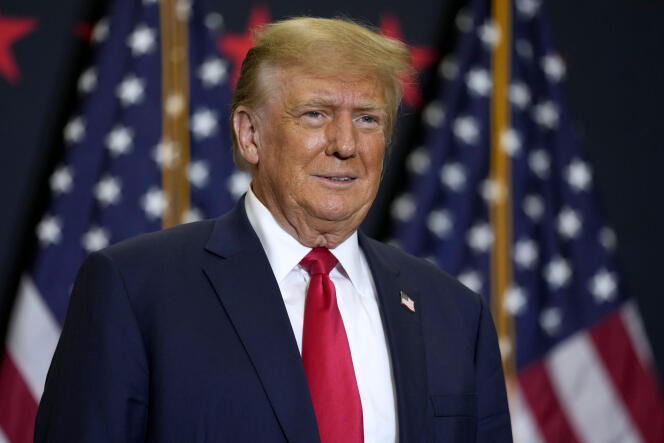


The US state of Maine on Thursday, December 28, blocked former president Donald Trump from its Republican presidential primary over his involvement in the January 2021 assault on the US Capitol, the state's top election official ruled.
The decision by Secretary of State Shenna Bellows follows a December ruling by the Colorado Supreme Court that booted Trump from the ballot there under Section 3 of the 14th Amendment of the US Constitution. That decision has been stayed until the US Supreme Court decides whether Trump is barred by the Civil War-era provision, which prohibits those who "engaged in insurrection" from holding office.
The Trump campaign said it would appeal Bellows' decision to Maine's state court system, and it is likely that the nation's highest court will have the final say on whether Trump appears on the ballot there and in the other states.
Bellows found that Trump could no longer run for his prior job because his role in the January 6, 2021, attack on the US Capitol violated Section 3, which bans from office those who "engaged in insurrection." Bellows made the ruling after some state residents, including a bipartisan group of former lawmakers, challenged Trump's position on the ballot.
"I do not reach this conclusion lightly," Bellows wrote in her 34-page decision. "I am mindful that no Secretary of State has ever deprived a presidential candidate of ballot access based on Section 3 of the Fourteenth Amendment. I am also mindful, however, that no presidential candidate has ever before engaged in insurrection."
The Trump campaign immediately slammed the ruling. "We are witnessing, in real-time, the attempted theft of an election and the disenfranchisement of the American voter," campaign spokesman Steven Cheung said in a statement.
Thursday's ruling demonstrates the need for the nation's highest court, which has never ruled on Section 3, to clarify what states can do.
